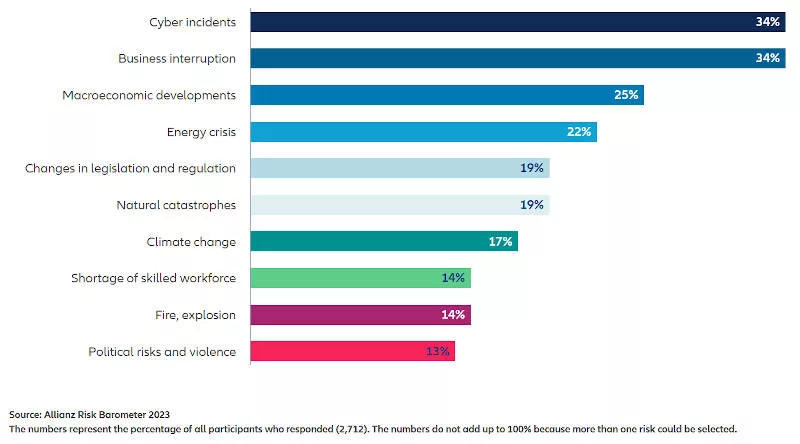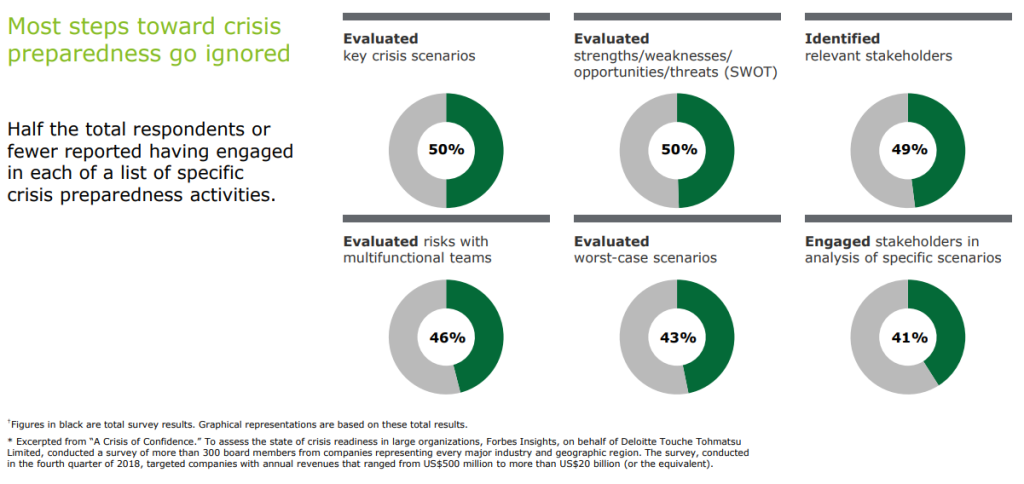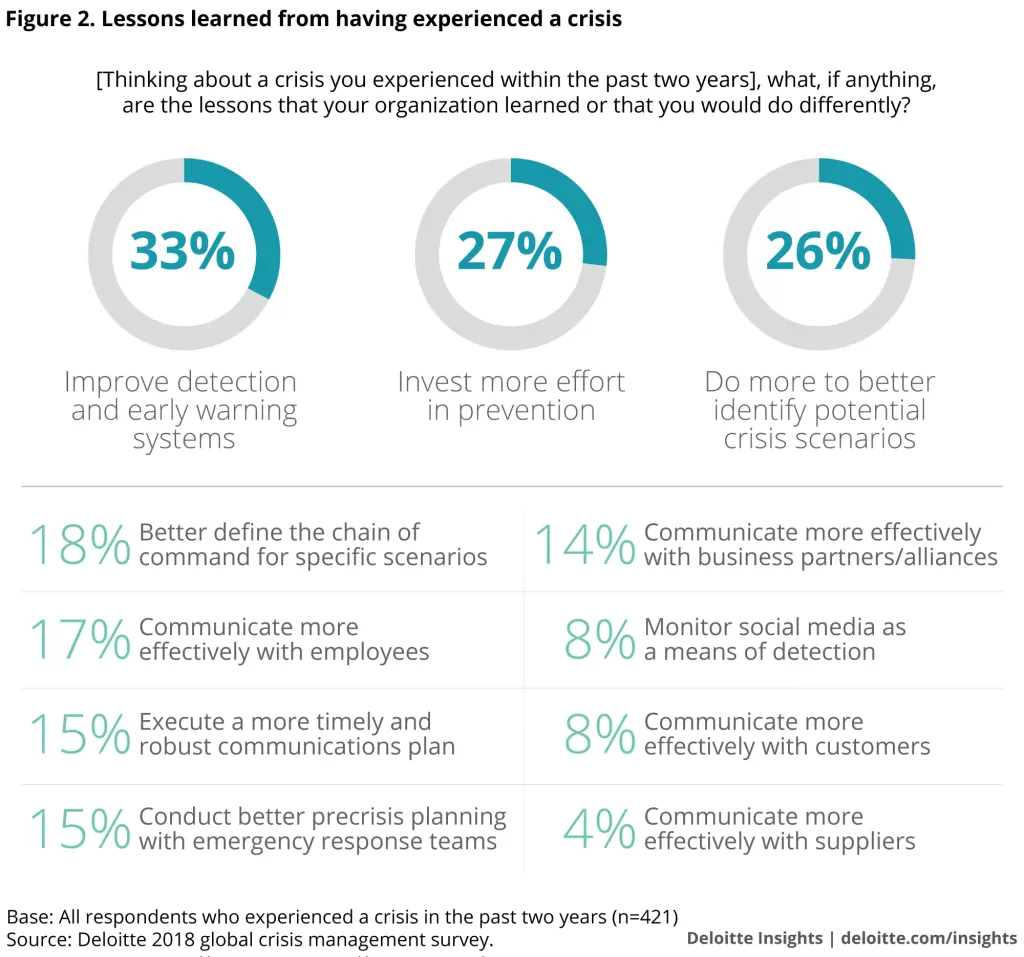By Thomas Mustac, Publicist — Otter PR
Whether within a business or on a global scale, a crisis can be a defining moment for any business. How they handle said crises can make or break the organization.
We live in a digital age where every crisis — and every response — is broadcast through social media, often in real-time. As such, companies must be adequately prepared to deftly handle any crisis that may arise.

The past year had its share of business-related crises, some of which made headlines for months, while others seemed to come and come in one news cycle. Here’s a comprehensive overview of the businesses that thrived or faltered as we delve into how businesses can approach strategic crisis management planning for the new year.
The best crisis responses
The standout performers in crisis management were those companies that demonstrated readiness and an understanding of their target market and social demands. These companies were quick to respond to crisis matters and reaped the rewards of effective crisis management.
During an economic downturn, Google stepped up by amplifying Black-owned businesses through its highly impactful Black-owned Friday initiative. Through a video featuring Keke Palmer and a robust campaign encouraging people to actively support and patronize these businesses, Google not only countered the recession’s effects but uplifted numerous minority small-business owners.
In a different scenario, Chick-fil-A weathered a storm in 2023 when some accused it of straying from its conservative, Christian-oriented values after it announced its commitment to fostering a “culture of belonging.” Despite facing criticism and social media backlash, Chick-fil-A maintained its rabid popularity, leveraging its strong brand identity and credibility. The term “woke” stirred controversy, reminiscent of challenges other brands like Bud Light faced in today’s politically charged social climate.
The approach companies take in handling crises significantly shapes public opinion. Those navigating crises skillfully exhibit a fusion of resilience, adaptability, and strategic finesse.
The worst crisis responses
While some emerged victorious with crisis management, others stumbled into confronting the challenges that arose in 2023.
The collapse of Silicon Valley Bank (SVB) marked a significant business crisis, ranking as the second-largest bank failure in US history. Due to rising interest rates, US bonds held by SVB lost some of their value, but those bonds were still worth billions. SVB — perhaps in a bid to get ahead of what they perceived to be an emerging crisis — released a statement that talked only about losses and neglected to explain that they were still cash-positive. Mishandling the public relations aspect contributed to a widespread panic response, triggering a rush of withdrawals, dealing a crippling blow to the bank beyond the point of recovery.
Similarly, Disney faced a stumbling block during the SAG-AFTRA/WGA strike, which halted numerous TV shows and movie productions throughout the year. CEO Bob Iger’s remarks dismissing the strikers’ demands as “unrealistic,” among other critiques, drew a swift and harsh rebuke from SAG-AFTRA president Fran Drescher, who called his various remarks “tone deaf” and “repugnant.” This incident compounded Disney’s existing public image challenges, including discontent over escalating park prices, underperforming movies, and a protracted feud with Florida Governor Ron DeSantis. Despite Iger’s subsequent retraction, the damage was irreversible for many supporters of the actors and writers affected.
Handling a crisis
Regardless of the size or scope of the crisis, the best response by a business should include some essential components. In the landscape of business, how a company navigates a crisis — no matter how significant it may be — hinges upon some pivotal elements.
Businesses must adopt a strategic approach incorporating essential components for effective crisis management. These fundamental elements not only serve as pillars in mitigating the impact of the crisis but also lay the groundwork for recovery and perseverance.
Preparation and planning
Crises will eventually happen, and businesses must anticipate potential crises and establish contingency plans to minimize their impact. Expecting the best but preparing for the worst is crucial, as the last thing a business wants is for a crisis to come out of nowhere without a strong crisis management plan in place.
Prompt response
Often, the fallout from a crisis comes because the business waited too long to respond, which is why companies need to take immediate action to prevent a crisis from escalating. Designating a crisis management team or a point of contact can facilitate this swift decision-making and help with the preparation and planning side of crisis management.
Transparency
Timely and accurate communication is integral to a successful crisis response, which is why organizations must keep their stakeholders informed about the crisis and the planned response. Companies must manage any uncertainty that may unfold and focus on fostering trust with people within the organization and its target market.
Adaptability and flexibility
A crisis can start as something small, and then blow up into a massive situation. Likewise, crises expected to be a big deal can sometimes blow over on their own, so businesses should remain open to changing their approach or response based on any evolving situation. Adaptability is key to managing any size crisis.
Learning and improvement
If businesses do not learn from a crisis, they are missing a significant opportunity. After a crisis has been handled, companies should analyze their response and see where changes can be made, as well as what aspects of their strategy were most effective.

How not to handle a crisis
Some of the worst crisis responses in 2023 fell victim to many of the ineffective crisis-management approaches.
Ignoring or denying the issue
Disregarding or downplaying a crisis, hoping that it will just go away when the public finds something else to occupy their attention, is never an effective crisis response. This will only make the public angry, and they will likely demand a response.
Poor communication
As we saw with the SVB debacle, a lack of open and transparent communication can cause confusion and panic. The lines of communication need to remain open, and businesses need to remain transparent with the public.
Delayed response
Much like obfuscating or ignoring the situation, procrastination or indecisiveness can make a crisis worse. If a business has installed a crisis management team or point of contact, they must ensure a prompt response.
Blaming others
Problem-solving approaches can be slowed or even rendered impossible if businesses cannot own up to their role in the crisis.
Failure to learn
As the old saying goes, those who do not learn from their mistakes are doomed to repeat them. A crisis should be analyzed and studied to learn from what a business did wrong or to implement what it did right next time.

While a crisis is never a welcomed situation, thorough planning, and strategic management can prevent a crisis from taking a devastating toll on a business. More than just challenges, these moments can be avenues for learning and evolution. Embracing preparedness and fostering open communication not only safeguards a business but also cultivates a platform for invaluable lessons and transformative growth amid adversity.
About the Author: Thomas Mustac is Otter PR’s medical and health industry PR specialist. He previously held positions at the Dr. Oz Show and New York Medical College. He has his Master’s Degree from Iona University and received an Advanced Certification in Nonprofit Public Relations. He has a diverse background in healthcare, pharmaceutical, telehealth, tech, cosmetics, sports, and interior design public relations.
